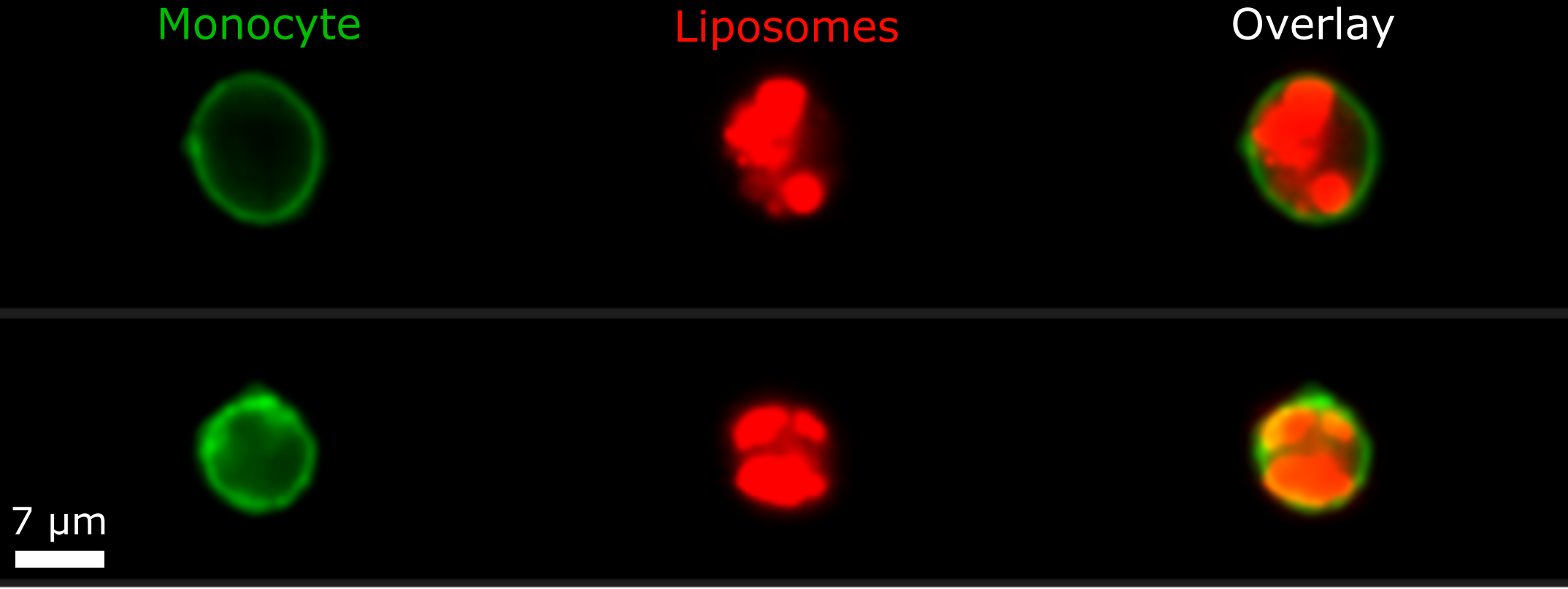New study challenges prevailing theory of liposomal accumulation and improves drug delivery to inflamed tissues
Study reveals that myeloid cells play a crucial role in the accumulation of liposomes in inflamed tissues
Drug delivery
Liposomes have been extensively studied as carriers for drugs that specifically target inflamed tissues. These microscopic lipid-based particles have the potential to improve the delivery of drugs by protecting them and enhancing their stability, bioavailability, and safety. It was previously believed that liposomes primarily accumulate in inflamed areas by passing through gaps in the blood vessel walls known as endothelial gaps. This phenomenon, known as the enhanced permeation and retention (EPR) effect, has been widely accepted as the main mechanism for liposomal accumulation in inflamed tissues.
Prof. Stefaan De Smedt, who contributed to the study (UGent, CRIG): "Our study challenges this prevailing theory and suggests that liposomes are also transported to inflamed tissues by a specific type of immune cell called myeloid cells. Myeloid cells are known for their involvement in the inflammatory response."
The researchers conducted experiments using a mouse model of arthritis to investigate the role of these cells in liposomal transport.
Myeloid transport
The results of the study revealed that myeloid cells play a crucial role in the accumulation of liposomes in inflamed tissues. By engulfing liposomes, myeloid cells can ferry them to the site of inflammation. When the researchers selectively depleted these cells from the bloodstream, they observed a significant reduction of liposomal accumulation in the inflamed areas, up to 50-60%.
Dr. Joke Deprez (VIB-UGent, CRIG), first author of the study: "Our finding suggests that myeloid-cell-mediated transport accounts for more than half of the liposomal accumulation in inflamed regions, which upends the way we used to think about liposomal accumulation."
.png)
Interestingly, the work also challenged the widely accepted belief that coating liposomes with a substance called polyethylene glycol (PEGylation) helps prevent their clearance by the body's immune system, including by myeloid cells. PEGylation is considered the gold standard for prolonging the circulation time of liposomes in the bloodstream.
Dr. Ine Lentacker (UGent, CRIG), co-senior author: "Contrary to expectations, the PEGylated liposomes, with their longer circulation time, were actually more readily taken up by myeloid cells."
The implications of this study are significant for the development of targeted therapies for inflammatory diseases.
Prof. Dirk Elewaut (VIB-UGent, CRIG): "By gaining a better understanding of how liposomes interact with immune cells, we can potentially design more effective treatments for conditions such as rheumatoid arthritis, COVID-19, and cancer, all of which involve an inflammatory component."
Publication
Transport by circulating myeloid cells drives liposomal accumulation in inflamed synovium. Deprez et al. Nature Nanotechnology, 2023.
Questions from patients
A breakthrough in research is not the same as a breakthrough in medicine. The realizations of VIB researchers can form the basis of new therapies, but the development path still takes years. This can raise a lot of questions. That is why we ask you to please refer questions in your report or article to the email address that VIB makes available for this purpose: patienteninfo@vib.be. Everyone can submit questions concerning this and other medically-oriented research directly to VIB via this address.
Gunnar De Winter
.png)


